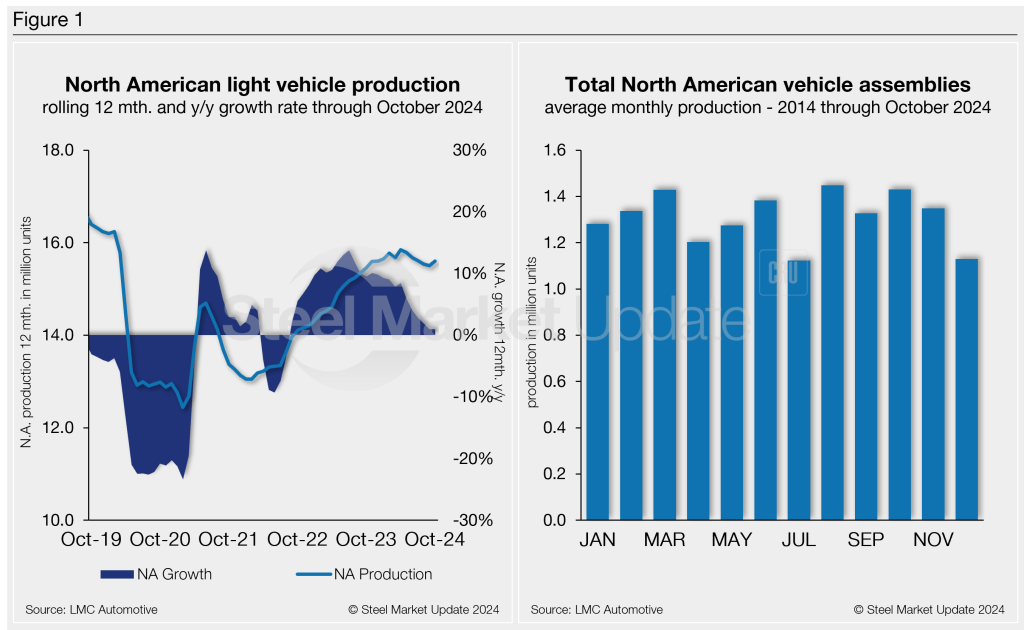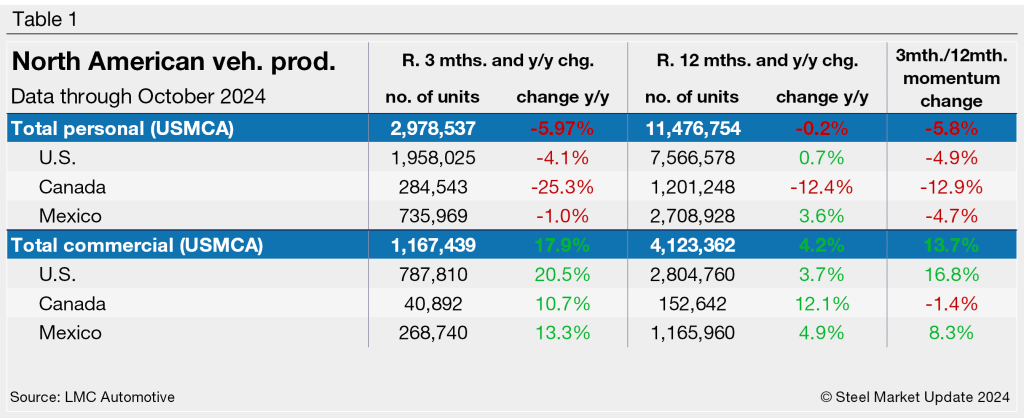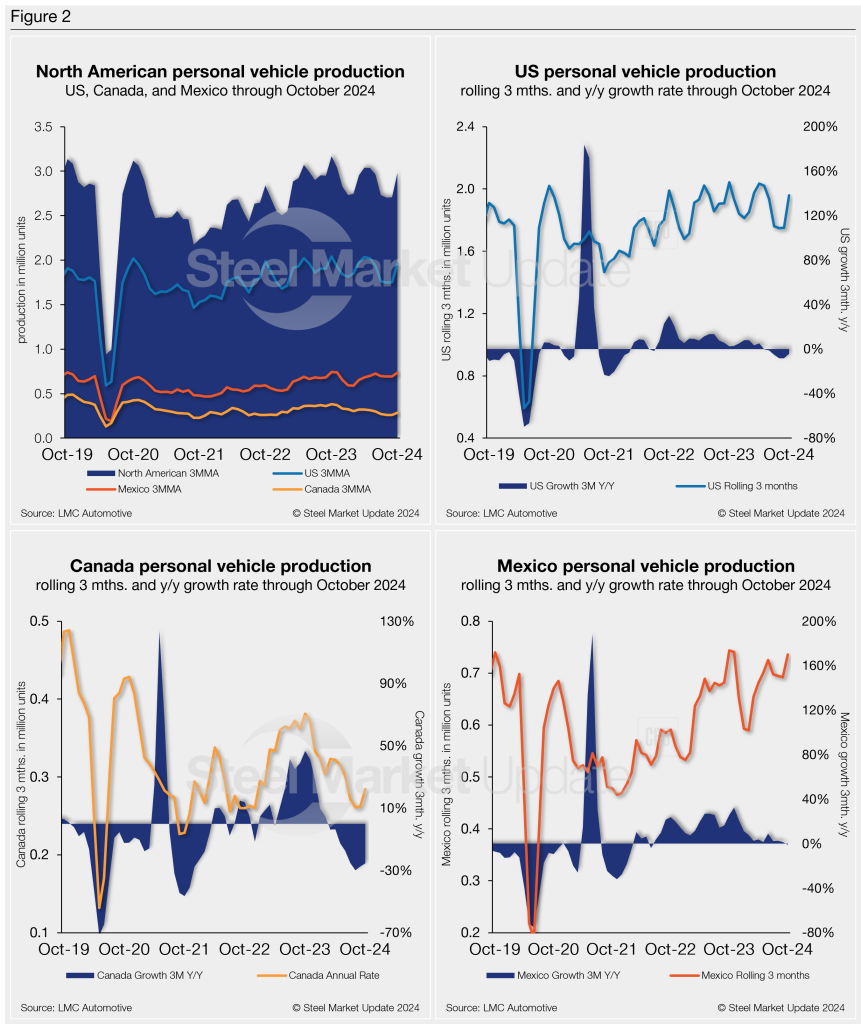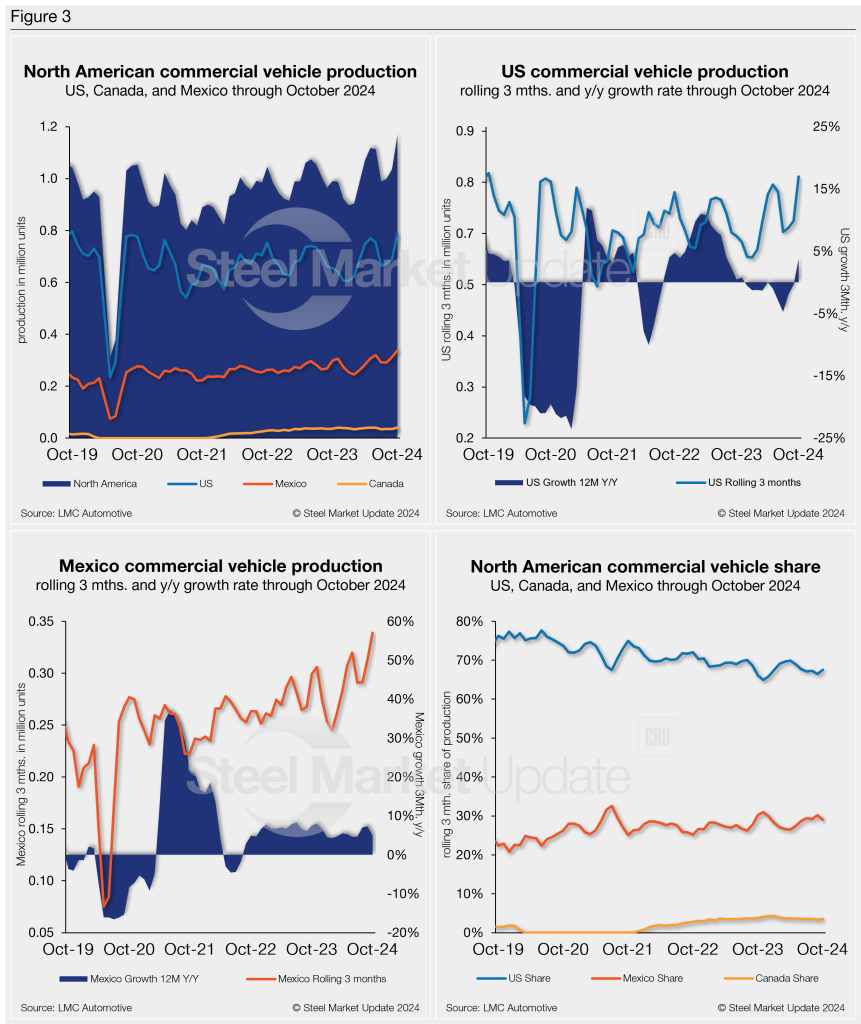Manufacturers/End Users
November 15, 2024
North American auto assemblies reach 14-month high in October
Written by David Schollaert
North American auto assemblies rallied in October, rising 11.3% above September, reaching the best output year to date. Assemblies were also up 7% year on-year (y/y), according to LMC Automotive data.
Auto production has fluctuated some after the typical summer slowdown. October’s assemblies reached the best total since August 2023. Production was a welcome sign to start Q4. Sentiment remains tempered as carmakers continue to downgrade and adjust vehicle output to meet curtailed market demand.
North American vehicle production, including personal and commercial vehicles, totaled 1.426 million units in October, an 11.3% boost from 1.328 million units in September. It’s roughly 7% ahead of the 1.357 million units produced one year ago.
Below in Figure 1 is a five-year snapshot of North American light-vehicle production since 2019 on a rolling 12-month basis with a y/y growth rate. Also included is a five-year snapshot of the average monthly production, which includes seasonality since 2019.

A short-term snapshot of assembly by nation and vehicle type is shown in the table below. It breaks down total North American personal and commercial vehicle production into US, Canadian, and Mexican components. It also includes the three- and 12-month growth rates for each and their momentum change.

For the three months and 12 months through October, the growth rate for total personal in the USMCA region remains behind, while commercial vehicle assemblies saw a notable boost. The momentum saw a shift due to a gain in commercial assembly vehicle segments.
Personal vehicle production
The longer-term picture of personal vehicle production across North America is shown below. The charts in Figure 2 show the total personal vehicle production for North America and the total for the US, Canada, and Mexico.
In terms of personal vehicle production, this segment saw a 14.8% m/m gain in October. Assemblies last month totaled 1.062 million units, up from 925,434 units in September. While the result was a notable gain, exceeding the 1-million-unit mark for the first time in five months, it’s up just 2.8% from one year ago.
The US saw a 16.7% m/m production boost, with 100,243 more units produced in October. Mexico produced 26,415 more units (+11.4%), while Canada’s production was up just 10,090 units (+11%).
Production share across North America was little changed. The US’ personal vehicle production share of the North American market was 65.3%, followed by Mexico and Canada at 25.5% and 9.2%, respectively.

Commercial vehicle production
Total commercial vehicle production for North America and the total for each nation within the region are shown in the first chart in Figure 3 on a rolling three-month basis. Commercial vehicle production in the US and Mexico and their y/y growth rates, as well as the production share for each nation in North America, are also shown.
North American commercial vehicle production was steady in October, but a large gain vs. the same year-ago period. The region saw a 2.7% m/m increase with a total of 390,394 units, up from 380,009 in September. October’s output was 20.4% above last year.
The US saw a 9.9% m/m increase, with 24,393 additional commercial vehicles assembled in October. Canada followed, up 10.7% (+1,341 units), and then Mexico, down 12.6% (-15,349 units).
October marked Canada’s 36th consecutive month of assembling commercial vehicles, after ceasing production for nearly two years from January 2020 through October 2021.
The market share across the region was also largely unchanged. The US total share was 67.5%, followed by Mexico with a 29% share, and Canada with a 3.5% share in October.
Presently, Mexico exports just under 80% of its light-vehicle production, with the US and Canada as the highest-volume destinations.

Editor’s note: This report is based on data from LMC Automotive for automotive assemblies in the US, Canada, and Mexico. The breakdown of assemblies is “Personal” (cars for personal use) and “Commercial” (light vehicles with less than 6.0 metric tons gross vehicle weight rating; heavy trucks and buses are not included).







